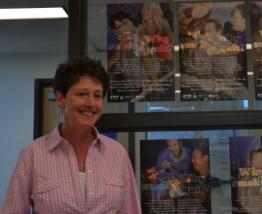Gay people smoke tobacco at more than double the rate of the general population, according to information included in a new Toronto public health campaign.
Stigma, stress and marketing campaigns targeted at gay people are all cited as aggravating factors, but the creators of the campaign hope that by getting people talking, they can get people quitting.
Members of Rainbow Health Ontario, Smoker’s Helpline and Toronto Public Health, along with design firm The Public, met April 11 to launch a provincewide media campaign called Clear the Air.
“We did a survey at Toronto Pride and went around and asked LGBT folks if they smoked or not,” explains Rainbow Health Ontario’s Donna Turner. “Thirty-three percent of LGBT people were smokers compared to 15 percent of the general population.”
Turner blames the tobacco industry’s targeted marketing.
“For many, many years, big tobacco companies actually targeted the LGBTQ communities with their marketing,” she alleges. “They saw our communities as a potential weak link . . . and the possibility to get us more hooked.”
In the US, an American Lung Association report found that 22 percent of San Francisco LGBT organizations surveyed between 2002 and 2004 had accepted tobacco industry funding. “The leaders of those groups recognized that these donations were ideologically difficult to defend, but felt they were necessary to keep their programs solvent,” the report says.
In the ‘90s, gay media outlets – often struggling to find revenue – were either ambivalent about or outright supportive of tobacco advertisement opportunities. In an interview with NPR, Jeff Yarbrough, former editor of The Advocate, pointed to the challenge for gay media to turn down ads – they were “in a beggar’s position, rather than a chooser’s position.”
Turner hopes Clear the Air will start a discussion about the way tobacco companies have pushed cigarettes in queer spaces. “I think when people realize that, they’ll feel like they want to fight back a little bit.”
Myriad factors can contribute to tobacco use, including homophobia and increased levels of stress. A bar-focused gay scene leaves many using tobacco as a social tool. Fear of homophobic or transphobic healthcare providers can also lead to avoidance and can leave queer people less likely to discuss their options for quitting with a healthcare provider.
For Turner, the first step is talking to queer people about how to fight addiction in a way that doesn’t shut them out.
“The evidence is pretty clear that smoking causes all sorts of health problems,” she says. “Our communities are going to have higher rates of those health problems as well.”
Sheila Sampath is creative director of The Public, which handled the creative design of the campaign. Sampath saw deficiencies in traditional anti-smoking messages, which she thinks fail to acknowledge the reasons that people smoke in the first place.
“We thought that it would be good to address those head-on, talking about how identifying as LGBTQ marginalizes you
. . . and also kind of talk about that being a motivation to quit,” Sampath says. “The answer to both of those questions is because of our identity, because of our community, we’re driven to smoke, but we’re also inspired to quit.”
Check out the campaign at this link.
If you’d like to quit smoking and want to speak with someone about your options, visit smokershelpline.ca or call 1-877-513-5333.


 Why you can trust Xtra
Why you can trust Xtra


